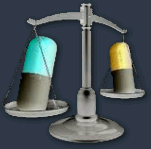| 1. Read the judgments. They’re educational. The judge will tell you in his judgment what the case is about, he will state the positions of the parties as he sees them, he will evaluate their arguments and the case law they have raised as precedents, and then, he will tell you his view, he will present his case law, and he will tell you how and why he rules. It’s an education in a nutshell. Read the rulings.
|
| 2. Use the annotated Charters and Codes to find judgments “on point”. “Annotated” volumes in the law library, or at the store, if you can afford them, list the LEADING CASES connected with each article of a major law. For example, the federal and provincial Charters, the Criminal Code of Canada, the Civil Code of Quebec, and Quebec Code of Civil Procedure are all the subjects of different annotated volumes by different publishers. |
| 3. If you can’t read French, get a French-English law dictionary out of the library. That’s how I started in 1998, and now I’m pretty fluent in reading legal French and in my particular areas of law. Also, dictionaries are very important to law. A word in Webster may mean one thing, but in Black’s Law Dictionary it may mean another. Check your meanings. |
| 4. Make friends with the Reference Librarians in the various law libraries. Be nice and polite. One of them taught me how to find cases in the numerous law books on the shelves. Very important to learn to do this properly. |
| 5. Visit the Courthouse and learn what all the Departments are, and who is in charge of them. Take a note book and write their names down, and their titles. Get the phone numbers and faxes for each Department. Sometimes, the Courthouse itself can give you a typed list of them. |
| 6. Find out at what service counter a case is opened, at what counter the “court stamp” proving payment is obtained, and at what counter the opened case is then filed. Find out what slot you can drop your “incidental proceedings” into. Find out Courthouse hours, including weekend and evening hours for emergency proceedings, and what bell to ring to get in after hours. Use the emergency facilities rarely, if ever. Don’t abuse them. Find out the difference between a motions judge, a judge in chambers, and a trial judge, and what their powers are. Find out the cost of copies. Find out what a plumitif is and how to use the equipment in the Courthouse to get one when you need one, or whom to ask for one if there is no equipment. If you need a plumitif as evidence, you can ask someone at the Courthouse to certify that it’s the real document by stamping and signing it. Find out where in the Courthouse to get tapes made. Find out where to get transcripts made, there is often a service right in the Courthouse. Or else, you can hire a Court stenographer out of the Yellow Pages. Sometimes there is a cork board in the Courthouse where stenographers, lawyers and others leave their business cards. |
| 7. Keep at home a COMPLETE copy of the Court file you are involved in and working on. If there are notes scribbled on or stapled to the Court’s own file folder, inside or out, photocopy them and keep them, they could be important. |
| 8. Make a “database” in your laptop or PC computer of all the CASE LAW you consult. Just DOWNLOAD it off the Internet and save the pages. You can often also get Law Journal articles online and download them. You can also visit a local University and obtain a guest pass to use their computers and databases. In that case, you can download your case law from the same legal publishers used by the lawyers: SOQUIJ, CARSWELL, QUICK LAW, JUSTIS, etc. |
| 9. SCAN your courtfile, and SCAN all the evidence, keep it in your computer HARD DRIVE, and back it up on a USB key, or an external portable hard drive. (Get the biggest hard drives you can afford, it pays off in the longrun!) I don’t have a scanner, but I have a digital camera. Turns out, I’ve been able to take pictures of my Court documents, and download them, it’s just like a scanner. You might even want to put up a web site documenting your case. This can be a good way to keep you involved and up-to-date, and also to receive comments you might find helpful from other pro se litigants. Court personnel sometimes put notes on a file. I once found a penciled memo on a yellow sticky note of a secret plan to change the judge in my file! A camera in your pocket can establish the precise state of the folder your file is in, including surprise “sticky notes” and scribblings inside & out. |
| 10. Learn the parts of a Court file and the types of documents that go into it: Minutes of Clerks, rulings of Judges, updated plumitif, ORIGINAL, Copy for Court, Notices, Affidavits, legally prescribed format for Fax cover sheets regarding service to other parties, and deposit into the Courthouse. Some Court documents may not be in your file, but they are connected with it. For example, the ROLE of cases on the day of your hearing. On the day of hearing, the ROLE is marked up by the Clerk at the time each case is sent to a hearing room. You should get a photocopy of the marked-up ROLE, which will normally be available the day after your hearing. Keep a copy of every ROLE in your own “Court file” at home. Marked-up ROLES are often destroyed after a certain period, and you might one day need it, and it will be too late to ask for a copy. |
| 11. If you are in Chambers with a Judge asking for something or responding to something, whether ex parte (in the absence of) or in the presence of the other party, always politely ask the Judge to have his Clerk make you an immediate photocopy of whatever notes he has written on your file, or the Clerk has written for him. If you are in a motion hearing in Practise Division, you probably won’t be able to get copies right away, because the Court is very busy in Practise Division. Therefore, visit your Court file 24-48 hours later, to get your copies. |
| 12. Transcripts are expensive, if a Judge is asking you to produce one, and you can’t afford it, you can ask the Judge to make his request in the form of a written Court Order, and if you qualify for any amount of Legal Aid assistance, you can produce the Court Order in support of a Legal Aid mandate to pay the Court stenographer to make the transcript and the necessary copies of it, and even to pay for the Court tape the Stenographer uses to make it. |
| 13. Visit the Courthouse and find the hearing room for the relevant “Practise Division”. Sit in the back and watch the lawyers. Watch how they greet the Judge, how they introduce themselves, how they behave, and emulate their courtesy. It is very classy and professional to greet the Judge properly when you are called on: “Bonjour, Votre Seigneurie.” “Bonjour, Monsieur le Juge“. “Good day, Mr. Justice”. “Good day, your Honour.” Speak briefly, to the point, then stop and listen attentively to what the Judge tells you, and then state, “Je comprends, Votre Seigneurie, Merci beaucoup.” “I understand, Mr. Justice, thank you very much.” Or ask whatever relevant question you need to ask. If you don’t understand what the Judge said, ask him to clarify. Say Good Day again as you are leaving, and thank the Judge for his time. |
| 14. Don’t call a Judge “Your Royal Highness”. Find out the proper titles of address for the Judge in your jurisdiction and USE them. |
| 15. Know your judges and their decisions on points relevant to you. Look up the biographies of the Judges in your District, online. The major Court web sites offer individual biographies and photos of their Judges. Then, look up YOUR judge’s case law online, and see what approaches he has previously taken. You might find something that supports your case before that Judge, or you might find arguments your Judge is likely to use against you, so you can prepare to defend against them. |
| 16. Ensure, before you speak, that your comments are being taped. Ask the Judge’s Clerk, who sits at the able below the Judge’s Bench, to ensure the tape is on. You may need to order a copy of it, or a transcript of it, for further action in your file. If you can’t afford to pay for a transcript, type up the tape yourself in the form of an Affidavit. |
| 17. Don’t discuss YOUR case out of Court, not even in the Law Library. Describe general requirements to the Law Librarian, when seeking research help, not the particulars of your case. You never know who is spying on you who could be subpoenaed to use your comments against you. I’ve had snoops follow me around; they didn’t get anything! Take my advice! (This does NOT conflict with putting your case online AFTER it has been filed. Only publish court documents at your web site that are already public in your court file; do not publish drafts of your proceedings, or your research, which will tip off the other side in advance.) |
| 18. Do NOT save your draft Court documents to the hard drive of any computer in a Law Library, public Internet cafe, or other outside location. Keep them on a USB key or an external portable hard drive, and DON’T FORGET to remove your USB key or external hard drive from any public computer you are using, and bring it back with you, safely enclosed in a protective carry case. Back up your work on TWO disks, not one. Because of REMOTE viewing of computer terminals, you should try to use a USB key that is either EMPTY or contains NOTHING but the data you are downloading at the time on a University computer, for example. Otherwise, remote snoops can see, and even copy, what’s on your USB key or external hard drive. |
| 19. Don’t type your drafts or write your important letters and inquiries on a public or university computer terminal. They have departments that watch these terminals all the time. They read your mail as you are typing it; they interfere in your correspondence and your research efforts. I know this for a fact. We have a police state, a snitch society. You must be aware of it, and protect your legal privacy and your evidence. Use your own laptop. Whether you use a public, university, or paid internet line, use a VPN with it at all times to block out snoops. You must use encrypted email and a VPN for your legal privacy. Security Kiss offers 300MB a day of free VPN access. Watch the ads online, the sales at used laptop stores. Even if you’re poor, you can now pick up a cheap functioning laptop for $50 bucks, and keep your case private until filed! |
| 20. Hotmail, Outlook, Live, Yahoo mail, Gmail, Everyone Mail, are all MONITORED, you have NO PRIVACY. Even if you have a domain name, and you attach email to it, this is useless, it is monitored by the web host. Get yourself a paid or free encrypted email account to keep the snoops out! |
| 20. There are signs in the Courthouse demanding politeness toward the staff. That goes both ways. Staff should also be polite to you. Don’t lose your temper if someone is giving you a rough time; don’t dispute with the person if it’s apparent the exchange is going to escalate. There are administrative offices in the Courthouse that you can have recourse to, and in a last resort, you can ask to see a Judge in Chambers, at which time, quietly and politely describe the nature of the problem. Sometimes, the Chamber Judge’s Clerk or Secretary will be able to help you, and you don’t even need to see the Judge. |
| 21. Finally, don’t let anyone, no matter how prestigious their office or title, abuse you or take advantage of you. Stand up for yourself, firmly and professionally. You can do it! |
| 22. Oh, and one last bit of advice which I got from a law student when I was just starting out. I was sitting in the Bibliothèque de droit at the Université de Montréal about 6-7 years ago, day in and day out, studying my area of law. I’m double the age of the law students, so I stuck out. One day, as I was leaving, a young man stopped me at the exit from the University and said he had seen me working hard every day, and congratulated me for doing so. He encouraged me to stick with it, and he said he had one piece of advice for me concerning Quebec law. And it was this: “They’ll screw you with procedure.” He was right. |
| 23. Study your procedure, take nothing for granted, look everything up and document it, before you make a move. The simplest thing that appears, at first glance, to have no significance, could be monumental. And don’t presume that just because a lawyer, or even a Justice Minister, has filed a proceeding or served you with something, that it’s necessarily correct procedure. Check everything, and everybody. There are provisions in the Code of Civil Procedure to make a formal request to a Judge for corrections in a file. You can question the validity of anything and everything, if you do it properly. You want your Court file correct, you want Rule of Law, not rule of Joe Blow. Otherwise, decisions made from erroneous facts and procedure can compromise you for no good reason. |
| 24. All the best with your case, and above all, enjoy being a “Self-representer”, also called a “Self-representing Litigant” in Canada, or in the USA, “pro se counsel”, which is Latin meaning “for oneself”, or being one’s own advocate. |
| 25. It is a fundamental right of every person to have access to competent Courts in order to give effect to their rights and obligations. You have every right to be there. With, or without a lawyer. |
|




